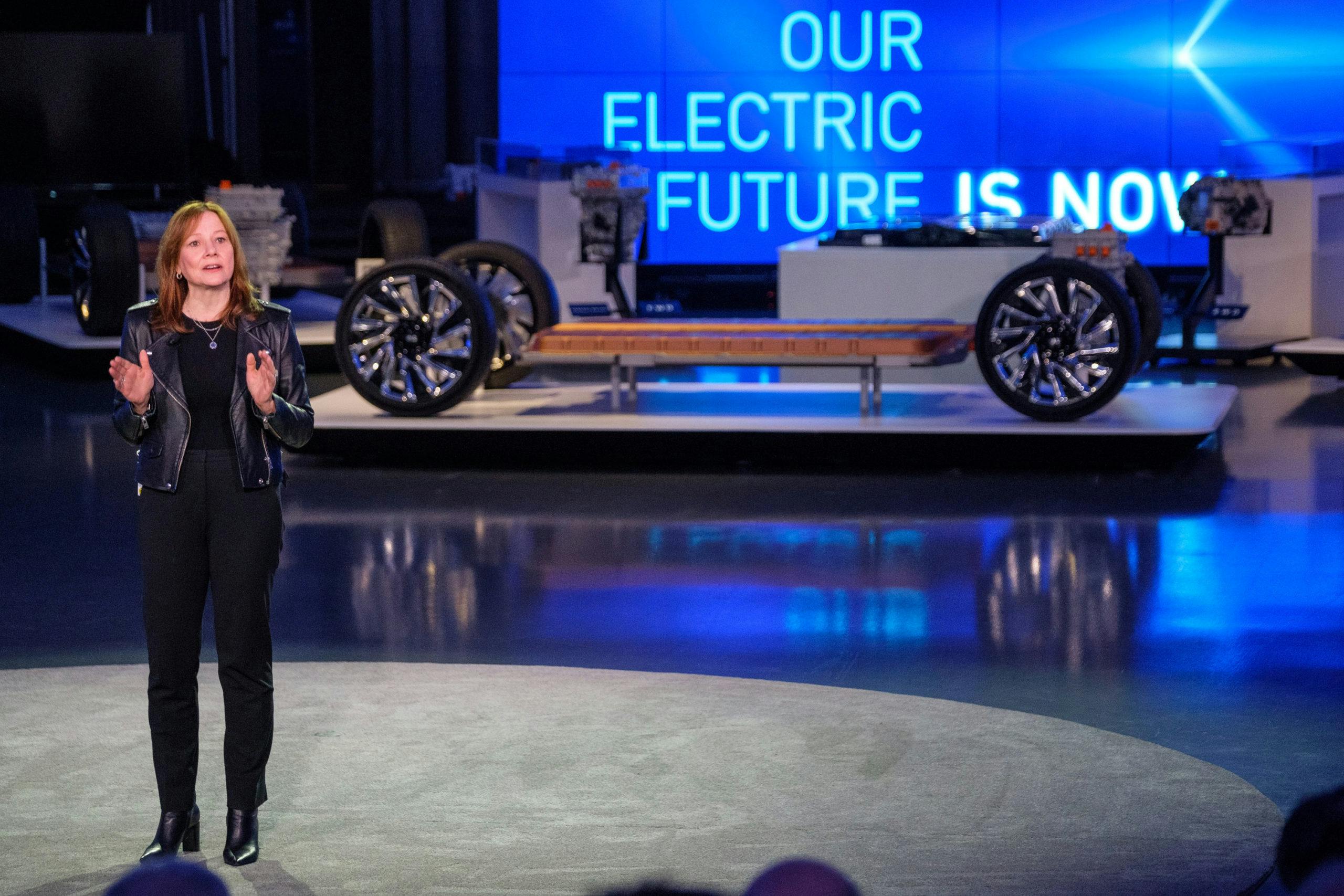General Motors has announced its commitment to zero emissions carbon neutrality by 2040. This includes ending production of all emissions-producing light vehicles by 2035 as the brand focuses on battery-electric technology. The company also signed the Business Ambition Pledge 1.5°C, which is a call to action for business and industry leaders to set science-based emissions reduction targets.
“General Motors is joining governments and companies around the globe working to establish a safer, greener, and better world,” said GM Chairman and CEO Mary Barra. “We encourage others to follow suit and make a significant impact on our industry and the economy as a whole.”
As part of its move toward an all-electric future, GM intends to offer EVs across a wide price range to cater to a wide variety of consumers. The company also plans to work with partners and stakeholders to improve EV charging infrastructure and accelerate consumer transition and acceptance of electric vehicles. GM will work with the Environmental Defense Fund to fulfill this goal while maintaining jobs and finding renewable energy sources.
“With this extraordinary step forward, GM is making it crystal clear that taking action to eliminate pollution from all new light-duty vehicles by 2035 is an essential element of any automaker’s business plan,” said Fred Krupp, President of the Environmental Defense Fund. “EDF and GM have had some important differences in the past, but this is a new day in America — one where serious collaboration to achieve transportation electrification, science-based climate progress, and equitably shared economic opportunity can move our nation forward.”
GM has increased its investment in electrification and autonomy to $27 billion, up from the $20 billion originally planned. By the middle of the decade, the company will offer 30 EVs globally and 40 percent of the U.S. vehicle lineup will be electric by the end of 2025. This will include multiple body styles including sedans, crossovers/SUVs, and trucks. Part of this investment includes the continued development of the Ultium battery technology, which will be used first in the GMC Hummer EV.
Factories like Factory Zero in Michigan and the Spring Hill, Tennessee facility will be upgraded to build EVs. New sites like Ultium Cells LLC in Ohio, which will also support manufacturing and STEM jobs are also part of the investment. In total, over half of GM’s capital spending and product development teams will be working on EVs and autonomous vehicle programs. These factories will be powered by renewable energies from 2030 onward. On the supply chain front, the company will implement plans to reduce emissions by finding best practices and collaborating with suppliers to make sure the chain contributes to carbon neutrality.
In support of expanding the charging network and making sure the electricity they’re producing is from sustainable sources, GM will work with utility providers and developers. EVgo, one of the largest fast-charging networks in the U.S., is one of GM’s partners; both will work together to add over 2,700 additional charging stations by 2025 as part of the plan to help accelerate EV adoption. Like its manufacturing facilities, the new chargers will be powered by renewable energy to support decarbonization.
GM’s commitment to zero emissions extends beyond building EVs. The company intends to make the whole process from the manufacturing to the charging of the vehicle to be as clean as possible. With its partners, GM is poised to be one of the first car and mobility companies to achieve carbon neutrality because it’s looking at every aspect of its business and the infrastructure built to support its vehicles.

